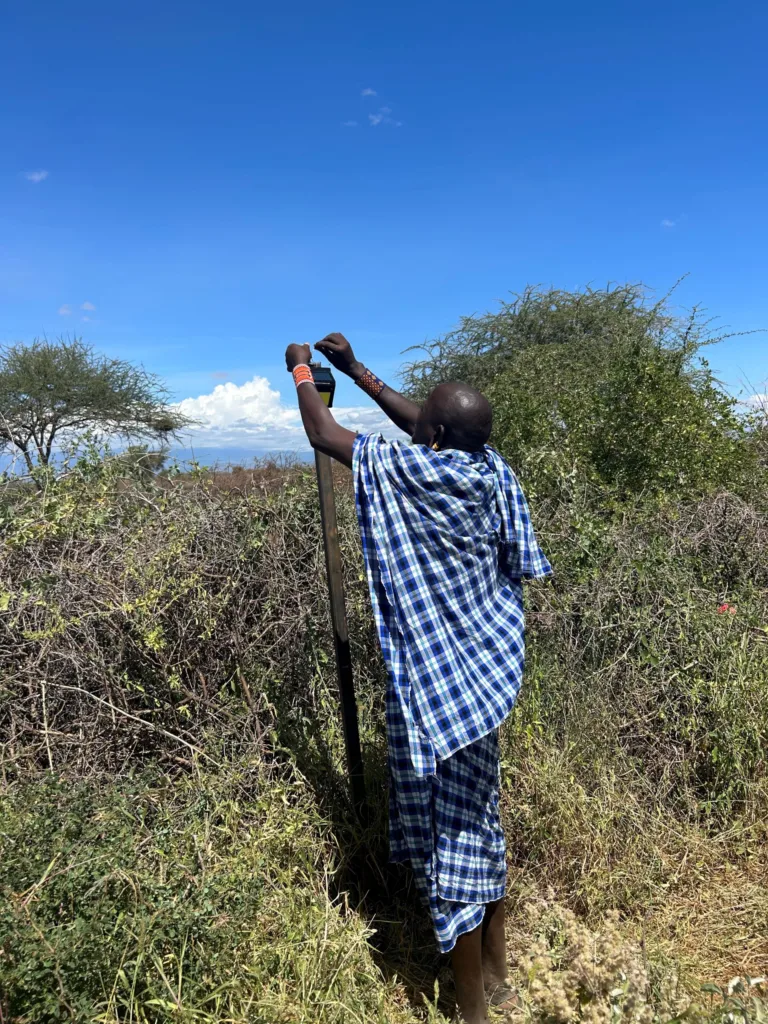Ethnography on South Caicos
The Environmental Policy and Socioeconomic Values course has gotten off to a great start with a series of field exercises designed to teach students how to conduct qualitative research. “Ethnography,” perhaps best defined as “the writing of cultures,” is an in-depth research method employed by anthropologists, sociologists, and some ecological conservationists to better understand the perspectives, experiences, and attitudes of the human populations with whom they are working.
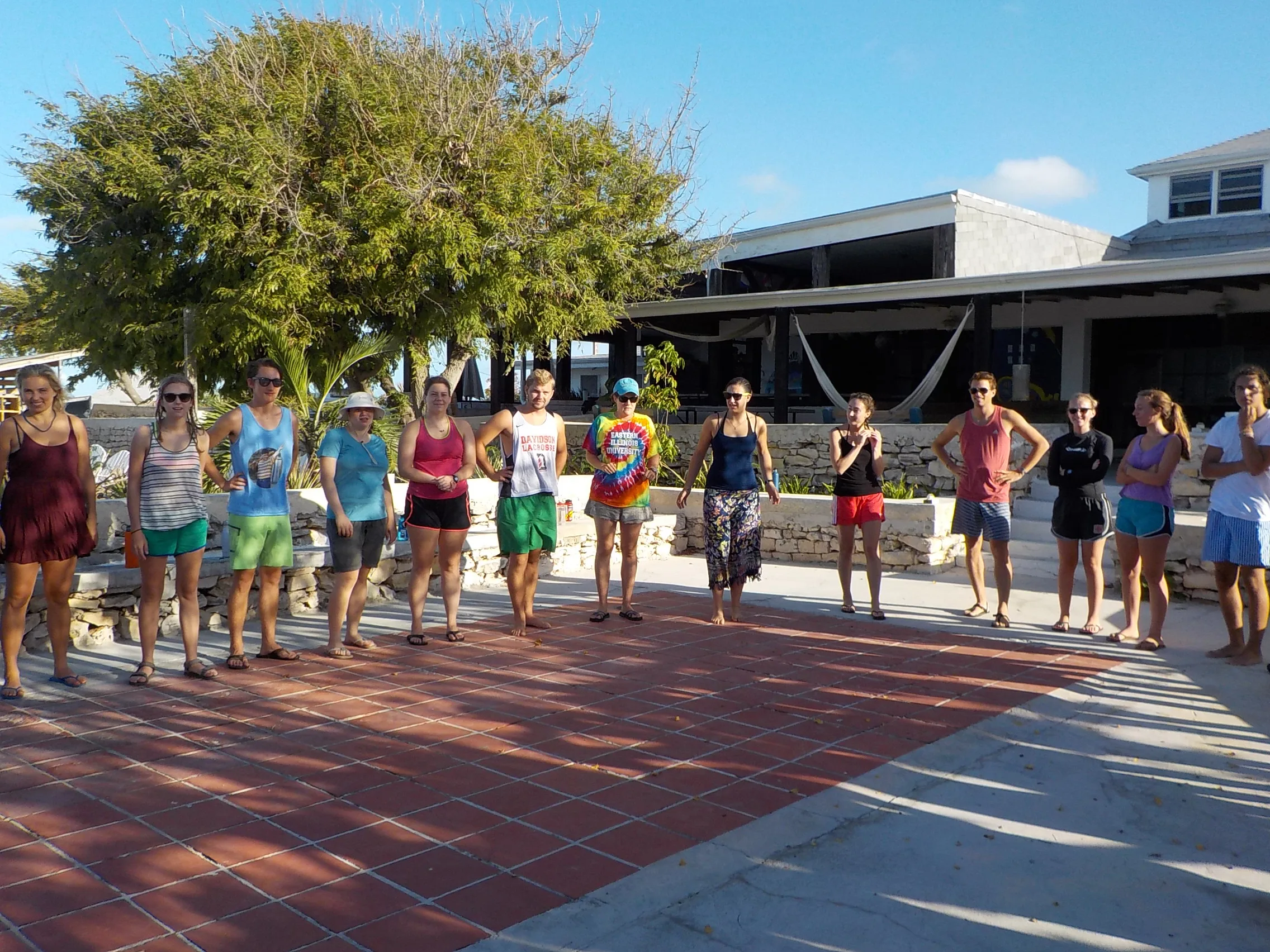
Students enjoy speaking with a local community member as they conduct preliminary ethnographic “canvassing” inquiries into the rhythms of daily life and environmental concerns on South Caicos.
While most of our students come to TCI to be underwater studying coral reefs and tropical fish habitats, they quickly realize that a more holistic approach is necessary in order to address what are perceived to be unsustainable human fishing and consumption habits. How can we possibly generate effective environmental policies without first understanding why certain laws and regulations are failing at the local level? Only through direct and sustained interactions with fishermen and their families can we hope to form a meaningful and mutually respectful working relationship with the community that hosts us.
The guiding principle of the first half of the course is “First, you must unlearn.” Students are encouraged to set aside the cultural biases that we all carry with us, especially when traveling, such that they may learn to listen in the language spoken by their interviewees living here on South Caicos. Toward this end, we are conducting structured surveys and recording semi-structured interviews with “key informants”: community members who are both willing and able to set aside time to speak with us about the development-related challenges facing South Caicos.
In addition to canvassing in the community for preliminary information, our class has hosted two guest speakers at the Center: Reverend John Malcolm, who spoke about the history and consequences of the illegal drug trade on the South Caicos economy, and former school teacher Ms. Emily Malcolm, who taught us about how the island made better use of natural resources in the era preceding major foodstuff importation from the United States. The speakers offered opposing viewpoints on immigration and labor-related social problems, helping our students understand the complex political history that informs certain prejudicial attitudes prevalent in TCI today.
Through these and other classroom-based activities, students are beginning to expand their worldviews and reconsider what it means to be a comprehensive marine resource researcher.
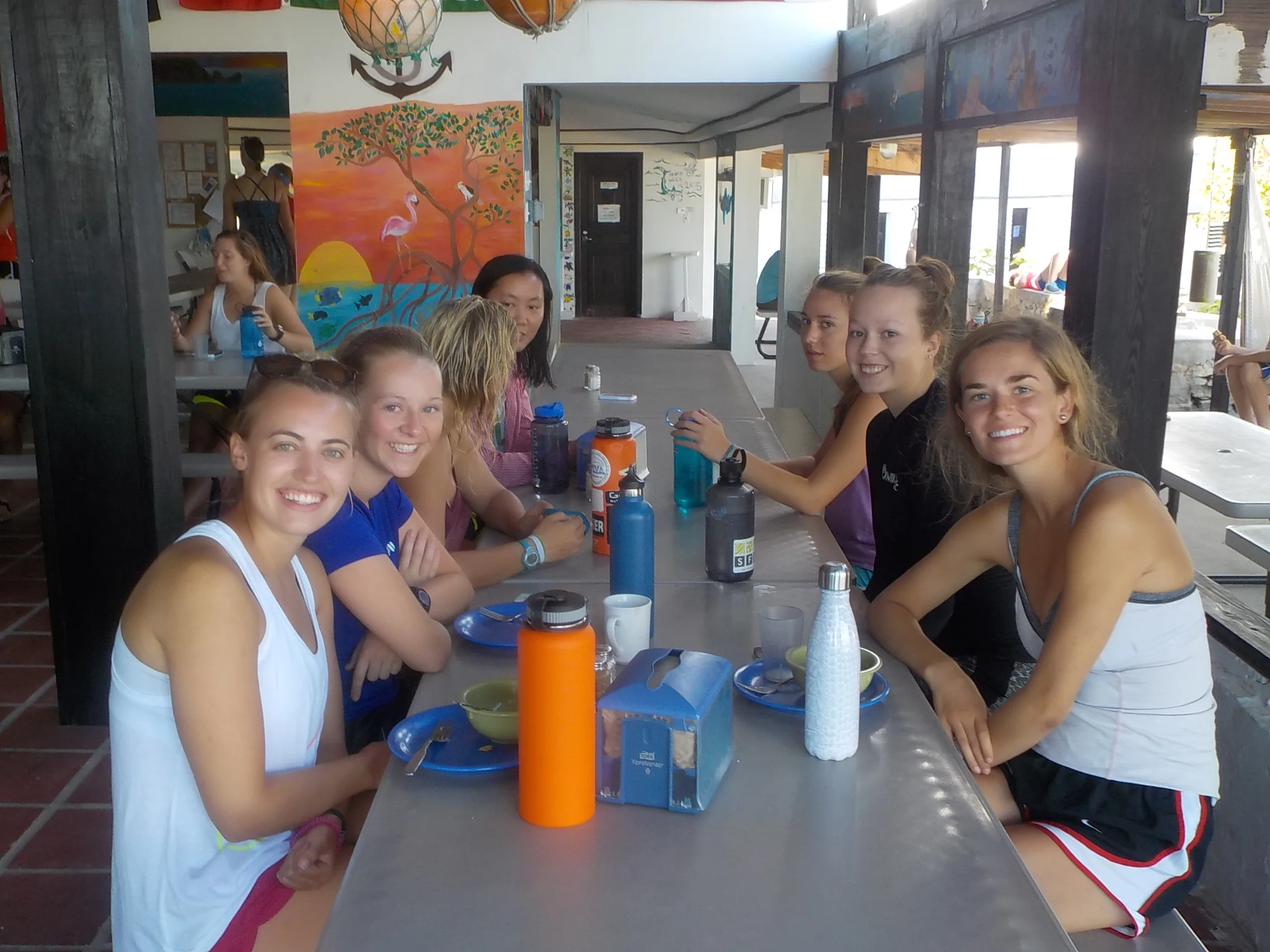
Students on a historical town tour use black-and-white photos to piece together where important buildings once stood—and in some cases, still do.
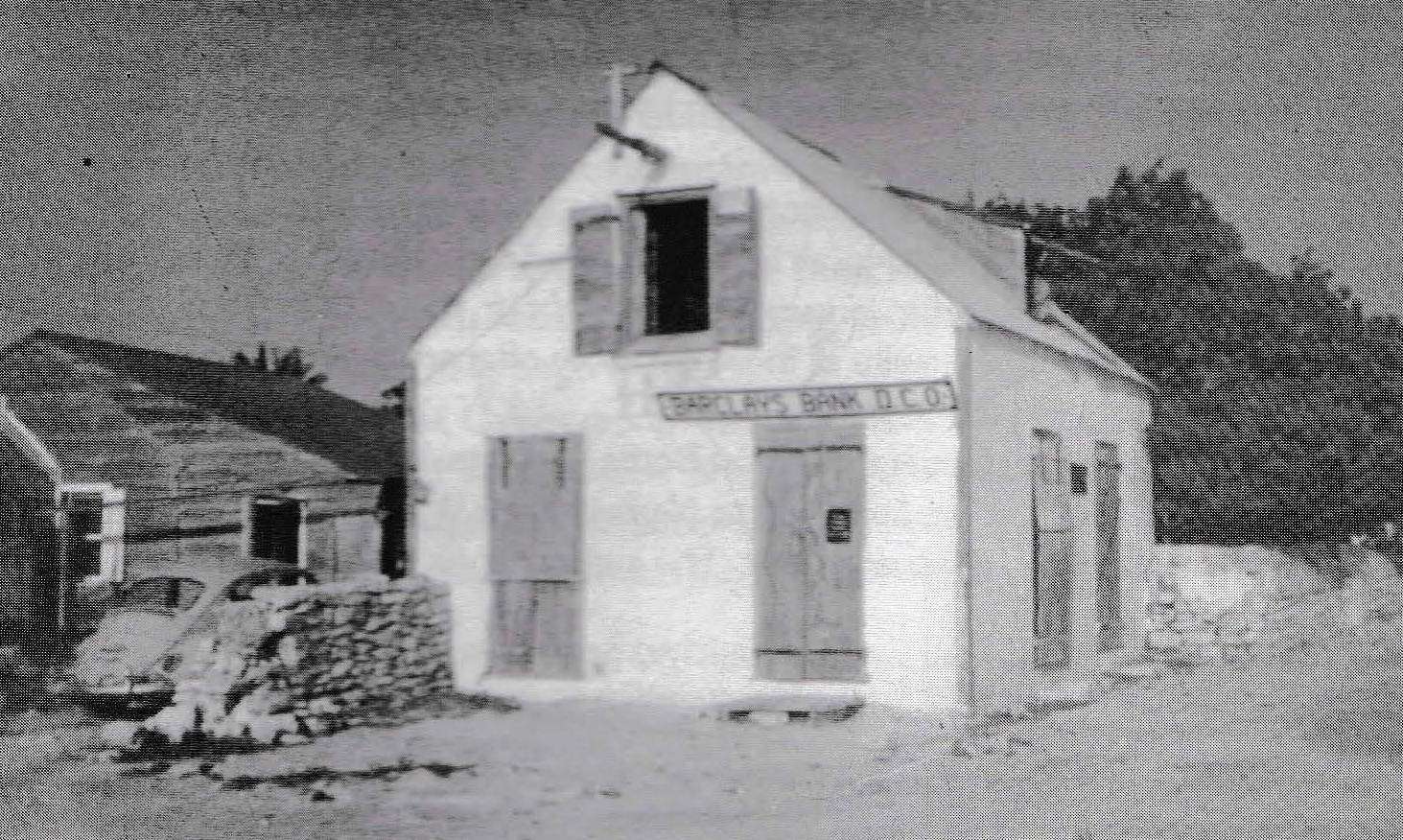
For example, Barclay’s Bank, the first bank established on TCI, is now the Stubbs Residence.
Related Posts
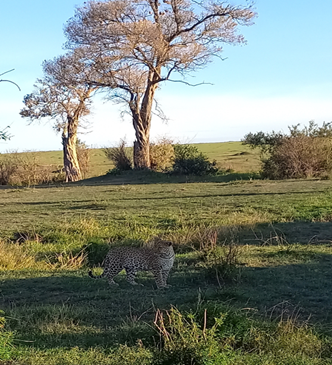
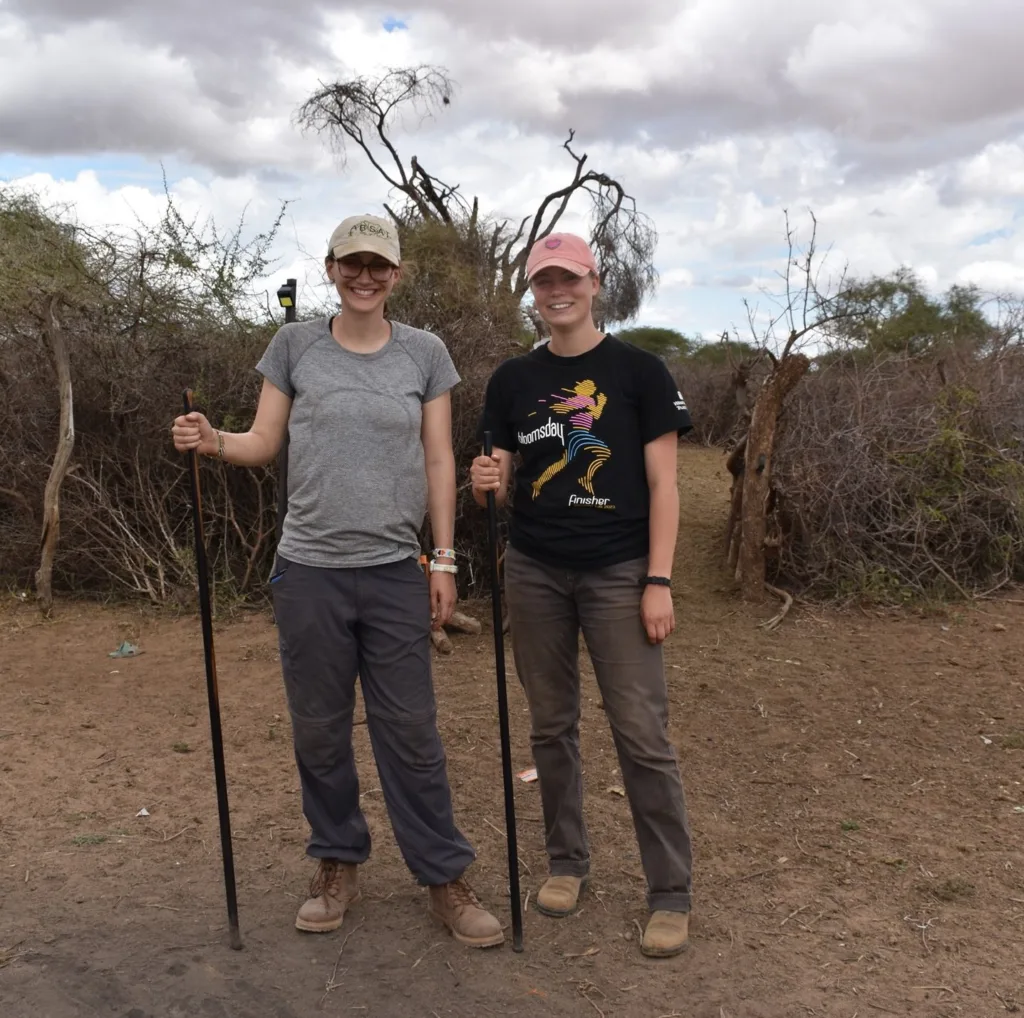
Alumni Reflections: Stories of the Return to Kenya
